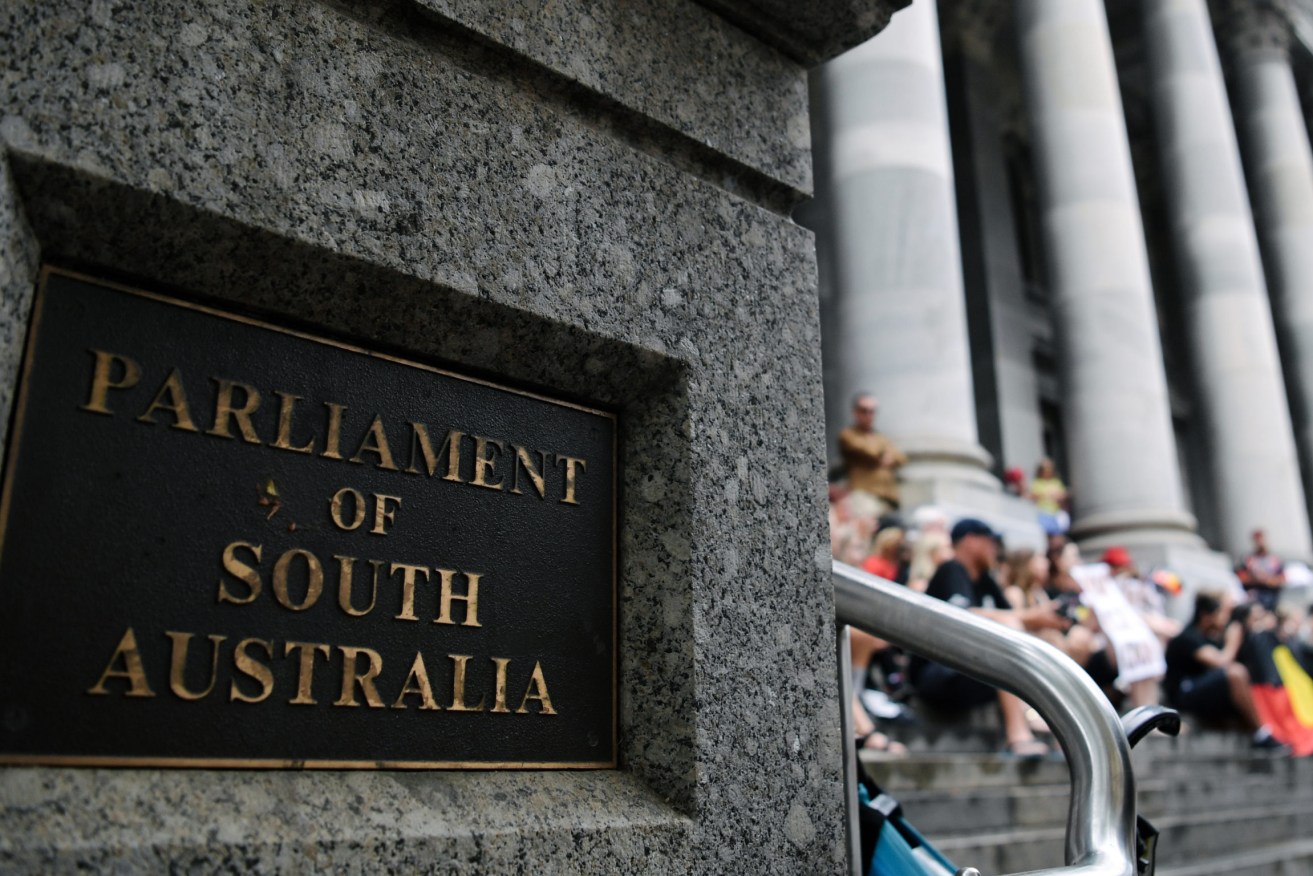Parliament to consider official recognition for SA’s Aboriginal languages
The State Government says it will consider legislating official recognition for South Australian Aboriginal languages alongside English, following a parliamentary committee recommendation.

Photo: Morgan Sette/AAP
The Aboriginal Lands Parliamentary Standing Committee this month handed down its report on the state of South Australia’s 46 dormant and active Aboriginal languages after just under a year of hearings, research and visits to communities across the state.
The report contains six recommendations to improve language retention and learning, including calls to develop an “overarching” Aboriginal languages policy and to increase funding for teaching programs.
It also recommends that the State Government formally recognise South Australian Aboriginal languages in legislation “through the declaration of one or more Aboriginal languages as official state languages”.
A State Government spokesperson told InDaily all the recommendations would be considered.
In the report, committee chair and Liberal MLC John Dawkins wrote that “structural support” was crucial to the future strength and revitalisation of Aboriginal languages.
He said South Australia had a “rich language heritage”, with First Nations languages making a “recognisable contribution to South Australian society”.
“Public domain support is as critical as community support in encouraging language learning and use,” he wrote.
“The United Nations Declaration on the Rights of Indigenous Peoples highlights ‘The right to have Indigenous languages recognised in constitutions and laws’.
“These forms of formal recognition (including the use of bilingual signage) serve to create an inclusive state and demonstrate to Aboriginal people their value within society.”
Dawkins told InDaily the committee did not consider details of how South Australia could legislate official recognition of Aboriginal languages, but it was open to suggestions from the Government if it chose to act on the recommendation.
According to the committee, of the 46 Aboriginal languages in South Australia, only four – Kulpantjatjara, Pitjantjatjara, Southern Pitjantjatjara and Yankunytjatjara – are classified as “strong” and spoken by all generations as the primary means of day-to-day communication.
Introduced disease and a push from Europeans to prohibit Aboriginal people from speaking their language meant the number of speakers rapidly plummeted in the wake of colonisation.
Kaurna – the First Nations language of the Adelaide Plains – is currently spoken by only a handful of people following a successful revitalisation movement spearheaded by University of Adelaide linguistics Associate Professor Rob Amery in the 1980s.
InDaily reported in October concerns from Amery and the Kaurna community that Kaurna teaching had declined “dreadfully” since the 1990s.
Approximately 80 per cent of South Australian public schools are located on Kaurna country, but only six currently offer Kaurna language courses.
It makes sense to recognise the language of the country in which we live
Amery said making Aboriginal languages official state languages would bring South Australia into line with New Zealand, Hawaii and South Africa, where First Nations languages are recognised in legislation.
He said Pitjantjatjara could be granted “special status” as an official language alongside English “since it’s still widely spoken and still acquired by children through intergenerational transmission”.
“Language, among other things, is a really important part of identity and it should be an important part of our national or state-based identity as South Australians,” he said.
“It makes sense to recognise the language of the country in which we live.”
Amery also welcomed the committee’s recommendation to establish a state languages centre, saying it would provide a space for Aboriginal language teachers to develop resources and document their research.
“If you go to teach German or Japanese or even Vietnamese, resources are pretty readily forthcoming,” he said.
“You can buy prepared language courses at different levels for different aged learners and different background learners.
“If you teach an Aboriginal language you’ve got to do so much of that yourself – you’ve got to prepare materials and resources on the fly and we need a lot more resources to support teaching and learning of Aboriginal languages.
“Having a dedicated space to do that work would go a long way.”
South Australia currently has dual naming legislation; meaning public places are named both in English and in the language of the Aboriginal country on which they are located, such as the River Torrens, which has the Kaurna name Karrawirra Parri.
The Education Department has also committed to reintroduce bilingual English- Pitjantjatjara/Yankunytjatjara education at schools in the APY Lands by 2029, and to boost the number of schools offering Aboriginal language teaching.
South Australia’s Constitution Act recognises that Aboriginal people “maintain their cultural and heritage beliefs, languages and laws which are of ongoing importance” and that they are the traditional owners and occupants of land and waters across the state.
Want to comment?
Send us an email, making it clear which story you’re commenting on and including your full name (required for publication) and phone number (only for verification purposes). Please put “Reader views” in the subject.
We’ll publish the best comments in a regular “Reader Views” post. Your comments can be brief, or we can accept up to 350 words, or thereabouts.




